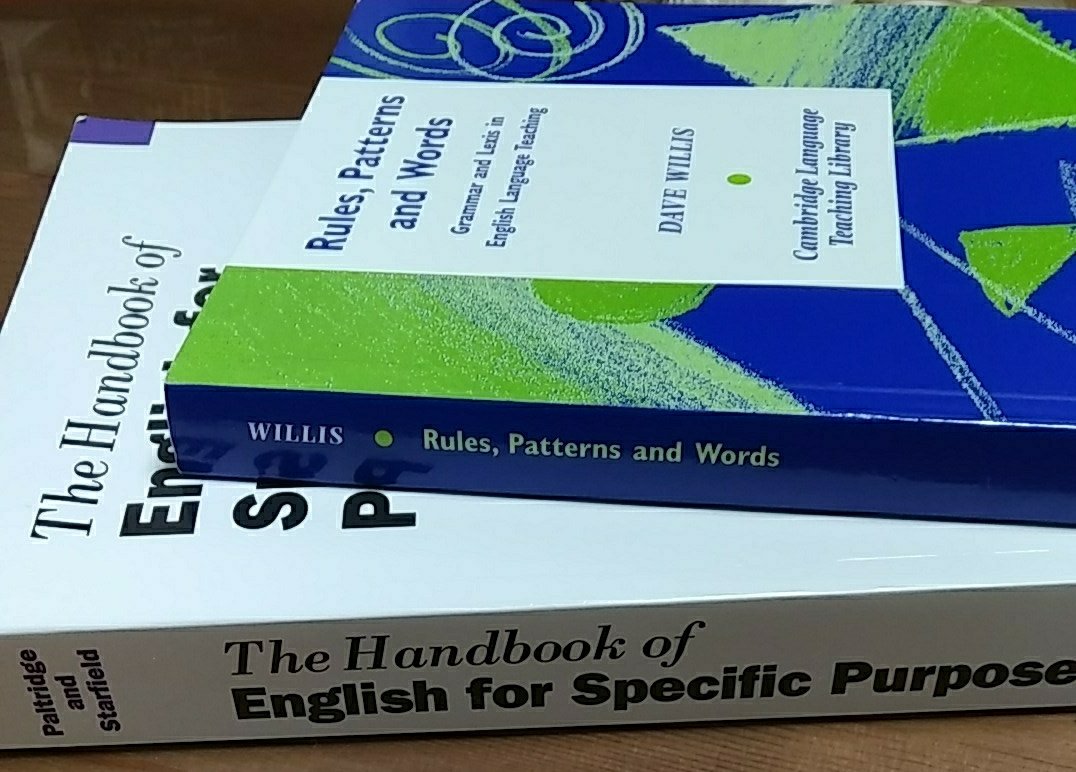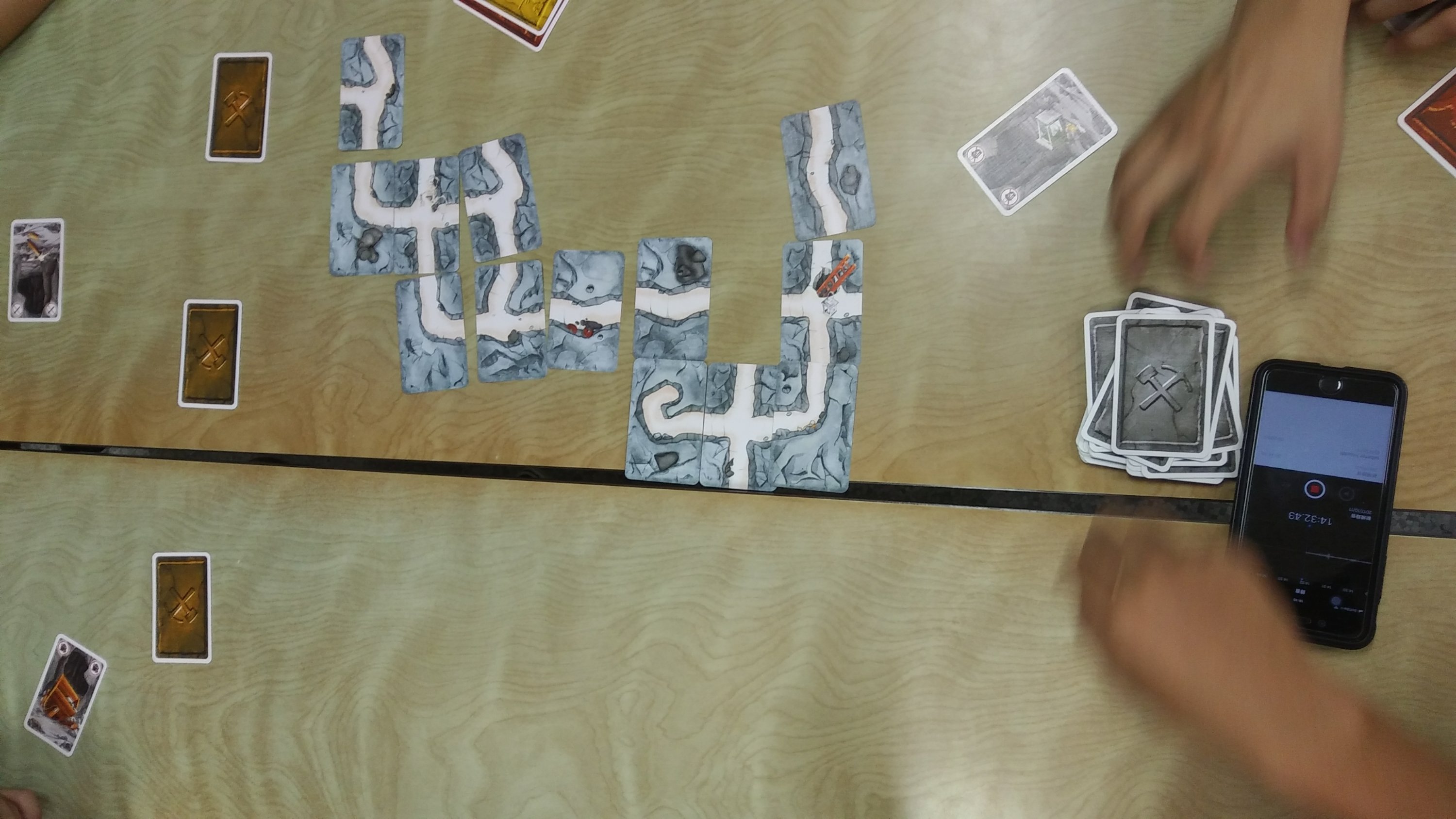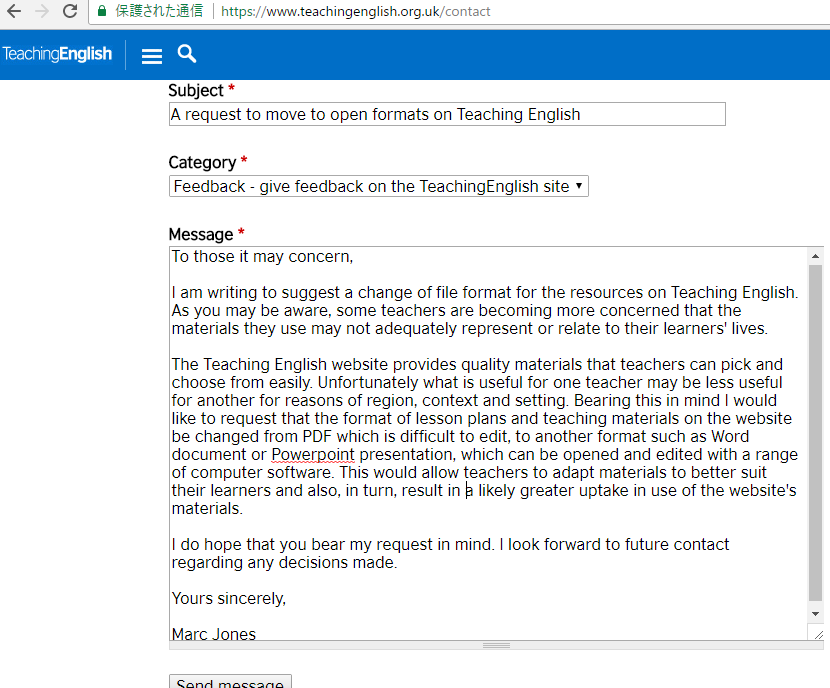This is a response to a post by Andrew Walkley of Lexical Lab on his about how teachers can use coursebooks in a principled way.
I am not actually getting into the back and forth about how evil/good they are as I have done so several times before.
Andrew has a couple of questions that seem genuine as opposed to discursive window dressing.
It seems to me, for example, that in choosing a task, TBLT practitioners must have some ideas of level and potential language in mind before the class.
Yes. Very much planned. There is a ton of planning, or at least gathering background information. There’s a needs analysis (NA) and a discourse analysis (DA) in the kind I do, based on Long (2014). I don’t have an applied linguist do my DA for me, though. I try to make a small corpus or at least gather some authentic texts (including videos or audio) to check how the tasks in the needs analysis would normally be done in the real world.
If I can’t access real-world examples then it comes down to reliance upon intuition. I dislike this but I feel that this gives me the chance to say that I have an idea about tasks ought to be performed but they should be co-constructed with learners’ knowledge of it. I certainly feel that writers rely on instincts at times, too.
The tasks to complete should be comparable to real-world tasks. Such tasks in my classroom may be (and I know that I diverge from orthodoxy from time to time) to engage in small talk in reception prior to a meeting in order to build rapport with a customer/client all the way to negotiating timescales with builders for renovation work so you can move into your house. It’s often (but not always) appropriate for learners to plan and repeat tasks. Focus on Form comes in as required. I know some people use Murphy (2012) for this. I don’t but that’s my preference. I use the board or have learners search for examples in SkELL and report findings or even just clean up a bit of lexis and grammar. It could be worksheets printed on the fly in higher tech classrooms. I like learners’ transcription of and reflection on parts of their own recorded tasks and reflection after focus on form and/or feedback in the lesson as a bit of homework.
Andrew also asks:
my questioning of TBLT/Dogme centres on how lessons actually work. I understand that a material-free classroom can work in principle, but I think we need to question the practice. What exactly are the tasks? How are those tasks chosen?
As for Dogme, I doubt I’m canonical here but knowing as much about the learners first helps the teacher pick tasks/topics that will pique interest as part of a negotiated syllabus. Then the syllabus gets negotiated and remains a work in progress. Tasks may even be chosen by learners seeing as they have an idea what they know/don’t know. It’s not an negation of the teacher’s role but information to support it. You negotiate a syllabus, rather than blindly accept “We want to talk about the philosophical underpinnings of the contemporary Russian state” with A2 learners. But who’s to say that talking about Russia or philosophy aren’t nice prerequisite steps towards this?
My Dogme lessons tend to start with a gathering of collective knowledge about the topic or reacting to a story or artefact. This output is then used to synthesise something else (even if it is merely a more crystallised opinion), taking the conversation to wherever it heads, focusing on form as and when needed. This requires neither coursebook pages nor the aforementioned Murphy (2012). Again, boardwork, negotiation of meaning in greater detail and work on nuance pay dividends. Grammar work could even involve a sentence jigsaw made from index cards or Post Its.
I hope this demystifies TBLT or Dogme classroom practices. Any questions, hit me up in the comments. Any comments, er, in the comments.
References
Long, M. (2014) Second Language Acquisition and Task-Based Language Teaching. New York. Wiley.
Murphy, R. (2012) English Grammar In Use (4th Ed.). Cambridge. CUP.




 I was on
I was on